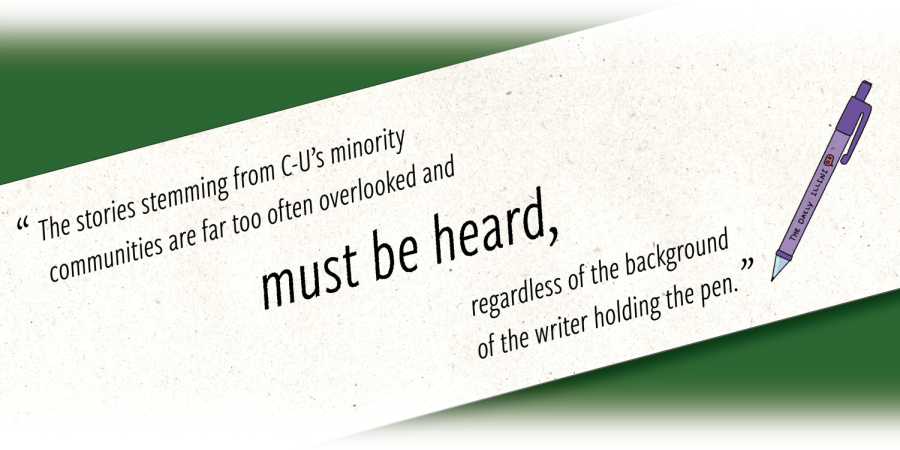Editorial | Inaction is action: Rethinking staying silent
February 2, 2023
The topic of this editorial is the product of two editorial board meetings that involved much debate and lengthy discussion about what the topic should be. Initially, we decided not to write an editorial at all, instead replacing it with an editor’s note about how the board lacked the qualification to comment on Black History Month.
But after a second, more reflective discussion, we realized that not writing an editorial would be a disservice to our job as journalists. It is of utmost importance to us that we do publish this paper without drowning out voices that need to be heard.
The old saying “inaction is action” applies here. The point of journalism has always been to shine a light on people and stories that the general public may not know about. The stories stemming from C-U’s minority communities are far too often overlooked and must be heard, regardless of the background of the writer holding the pen.
As you’ll see in this issue, our writers have once again worked to deliver a breadth of informative, thought-provoking and personal stories about the Black experience in the United States.
The need to be well informed is ever more apparent as the education of Black history is incessantly politicized and avoided in classrooms. Black history has always been treated as a margin note in public school history classes.
Get The Daily Illini in your inbox!
Remember high school AP classes? AP African American Studies was recently banned from being taught in certain Florida schools. Erasure of history as a political maneuver is happening right now and sets a dangerous precedent, giving us more of a reason to amplify Black voices.
Other direct attacks on Black history, like the vilification of Critical Race Theory and book bans, can be countered with good watchdog journalism.
Historically, journalism has been used to disenfranchise communities, yet we believe good journalism can do the exact opposite, and it has. Voice has no color.
Our job is to tell the stories of real people. It’s also our job to criticize society. Good reporting drives change. Or, at least, that is how it should be.
Being the University’s student newspaper, and by extension, the voice of its student population, The Daily Illini has a major responsibility to use its influence to speak up on injustices and amplify the voices of those belonging to marginalized groups.
With that in mind, we urge you to read on and listen to the Black voices we’ve interviewed and who have contributed to this edition of the paper.







